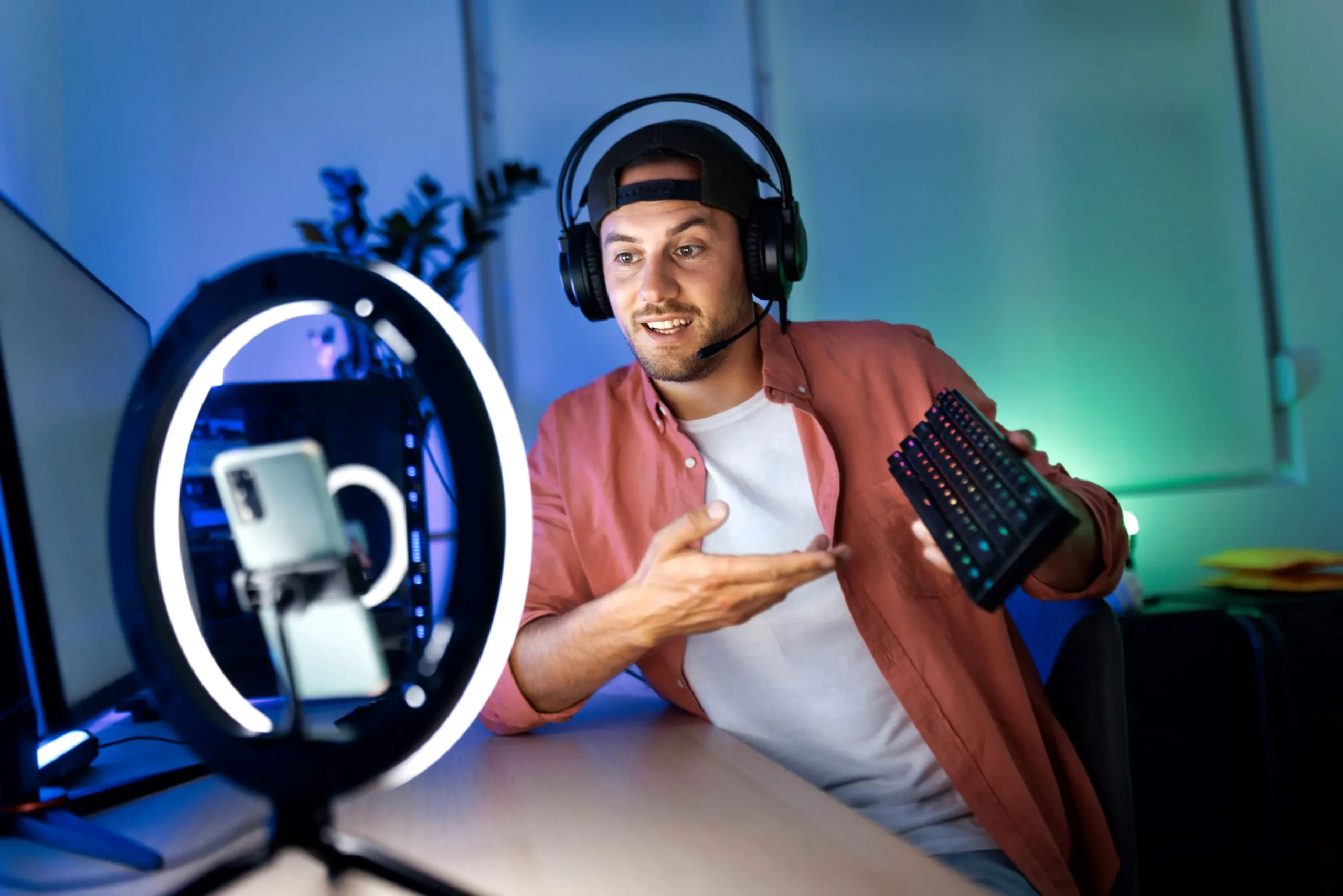From artificial intelligence to virtual reality, technology is reinventing the digital world and our relationship with it. Digital devices make life convenient and comfortable. They can also transform the lives of people with disabilities—fueling the future of accessible technology.
According to the CDC, one in four U.S. adults has a disability related to movement, cognition, vision, or hearing that affect independent living. But accessible technology can make a difference, helping people with disabilities do more independently.
Assistive vs. accessible technology
Accessible technology is different than assistive technology, but the two go hand in hand. Assistive technology provides a specific solution for a unique impairment, such as closed captioning for the hearing impaired. Accessible technology is created for everyone and adapts to assistive tools. Think of a smart phone, which lets you customize features like voice assistants and regular keyboards to fit your own needs.

Innovations in accessible technology
People with disabilities face many obstacles, from using physical spaces to finding online resources. Both accessible and assistive technology can tackle these challenges. Mainstream devices help people with disabilities work, communicate, and manage everyday tasks—giving them new levels of freedom and independence.
Smart homes
In a smart home, devices and appliances are linked through a fast, fiber-optic internet connection to a central device. This lets you control home functions like heating, lighting, and security from a smartphone or speaker. The setup is made possible by the Internet of Things, a network of devices built with sensors and software that all share data.
This network is a game-changer for people with limited mobility. It creates new ways to achieve everyday tasks. With smart thermostats, wheelchair users adjust the temperature using their voice. Little to no movement is needed to turn on lights, open blinds, or answer the doorbell. Robots are even capable of cleaning. These smart devices can empower people with disabilities, freeing them from relying on others to control their environment.
Speech recognition
Voice technology is becoming the digital norm. Smart speakers are cool and convenient; they also help people who struggle with dexterity and vision. Voice assistants like Siri and Alexa use speech recognition software, which interprets voice commands into language that a computer understands. You can check the weather, reply to emails, create to-do lists, or play your favorite music—all by talking to a device.
As a result, speech recognition is key for accessible technology. It opens doors for people with disabilities and includes them in the digital world. With greater access to online information, people with motor or vision impairments can apply for jobs and navigate the workplace. Even voice-controlled video games make entertainment more accessible.

Wearable technology
Wearable devices have long supported people with all types and severities of impairments and disabilities. Wearable technology is now evolving with the digital world. Innovations like smart watches and wearable keyboards can help many people, especially those with disabilities.
Smart watches use a haptic feedback system, meaning communication via touch. An Apple Watch taps the user’s wrist to alert reminders and messages, benefiting people with hearing impairments. The watch offers many other accessibility features: voice-overs, scribble-to-text, as well as workouts for wheelchair users.
Wearable keyboards like Tap also improve how people with disabilities interact with technology. They can connect to smartphones, tablets, laptops, and computers. Acting as a mouse and keyboard, Tap translates finger movements into letters and hand gestures into mouse control. Wearable devices like VR headsets are also linked to mental health. Where adults with disabilities experience mental distress five times as often as those with no disabilities, virtual reality can help treat many mental health disorders, including anxiety and depression.
Mobile apps
People with disabilities are capable and independent but may not always have all the resources they need. This is where mobile apps come in. Accessible apps help people navigate through daily life, keeping them safe from harm and prepared for obstacles.
BlindSquare guides people with vision impairments through the streets, using GPS to provide audio info about the surroundings. Users shake the device to hear their current location and can hit save if they get lost. Accommodating both braille displays and text-to-speech software, BlindSquare even helps users call an Uber.
Operating in 35 countries, AccessNow connects the disabled community. The app helps users find and review places based on their accessibility. You can search for restaurants, parks, and shops that accommodate your physical needs and avoid those that don’t. People with disabilities can make informed choices and know ahead of time how accessible a place is.
Accessible technology and fiber internet
Many accessible devices need a fast internet connection, like Quantum Fiber. With speeds up to 940 Mpbs, you can connect multiple devices to the internet: light switches, thermostats, speakers, you name it. Quantum Fiber also makes data travel fast, which ensures smooth speech recognition. Reliable connections make accessible technology possible, propelling the potential for an inclusive industry. Speed may not be available in your area.








